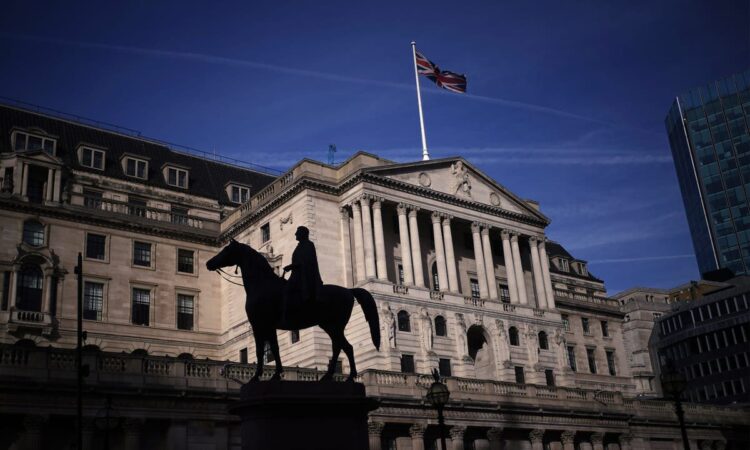
UK inflation could get close to the Bank of England’s target of 2 per cent when the latest figures are released by the Office for National Statistics (ONS) on Wednesday.
The Consumer Prices Index (CPI) dropped to 3.2 per cent for March, compared with the previous year, and forecasters polled by Reuters think inflation will drop to 2.1 per cent for April.
Pantheon Economics predicts a slightly lower figure of 2 per cent and Capital Economics thinks that it could dip even lower to 1.9 per cent. The Bank of England’s (BoE) own forecast is 2.1 per cent.
Ashley Webb, UK economist at Capital Economics, said: “Next Wednesday’s release of April’s CPI inflation data could prove momentous if we’re right in thinking that inflation fell from 3.2% in March to below the 2.0% target for the first time in three years.
“This will be crucial in determining whether the first interest rate cut from 5.25% will happen in June (as we expect) or in August. What’s more important is what happens next. We think inflation will fall further, perhaps even to 1.0% later this year.”
The expected lower figures to be released on Wednesday will put further pressure on the Bank of England to cut interest rates from their 16-year-high of 5.25 per cent.
Policymakers at the central bank hiked interest rates over the past two years in a bid to tackle inflation and have a target of getting it back down to 2 per cent, after it reached a peak of 11.1 per cent in 2022.
The expected fall in inflation will comes just days after Ben Broadbent, deputy governor of the BoE, suggested that UK interest rates could be cut as soon as this summer.
He said in a speech on Monday morning that it is “possible” borrowing costs will come down this summer if the economy evolves as expected.
The economist said the Bank’s nine-strong MPC, which votes on potential interest rate increases, must assess how potential persistence around wage and services inflation are continuing to develop.
He added: “Whatever the priors of its individual members the MPC will continue to learn from the incoming data and, if things continue to evolve with its forecasts – forecasts that suggest policy will have to become less restrictive at some point – then it’s possible the bank rate could be cut some time over the summer.”
Earlier this month, Mr Broadbent was among those to vote for interest rates to remain at 5.25 per cent, with a 7-2 vote in favour of no change.
The financial markets have priced in a reduction to interest rates by August.
Data released by Kantar on Tuesday indicated that grocery price inflation has slowed to its lowest level since October 2021.
Supermarket prices are 2.4% higher than a year ago, slowing for the 15th month in a row from April’s 3.2 per cent, according to analysts Kantar.
Grocery inflation is now just 0.8 percentage points above the 10-year average of 1.6 per cent between 2012 and 2021, just before prices began to climb.
Fraser McKevitt, head of retail and consumer insight at Kantar, said: “Grocery price inflation is gradually returning to what we would consider more normal levels.
“Typically, an inflation rate of around 3% is when we start to see marked changes in consumers’ behaviour, with shoppers trading down to cheaper items when the rate goes above this line and vice versa when the rate drops.
“However, after nearly two-and-a-half years of rapidly rising prices, it could take a bit longer for shoppers to unwind the habits they have learnt to help them manage the cost of living crisis.”






